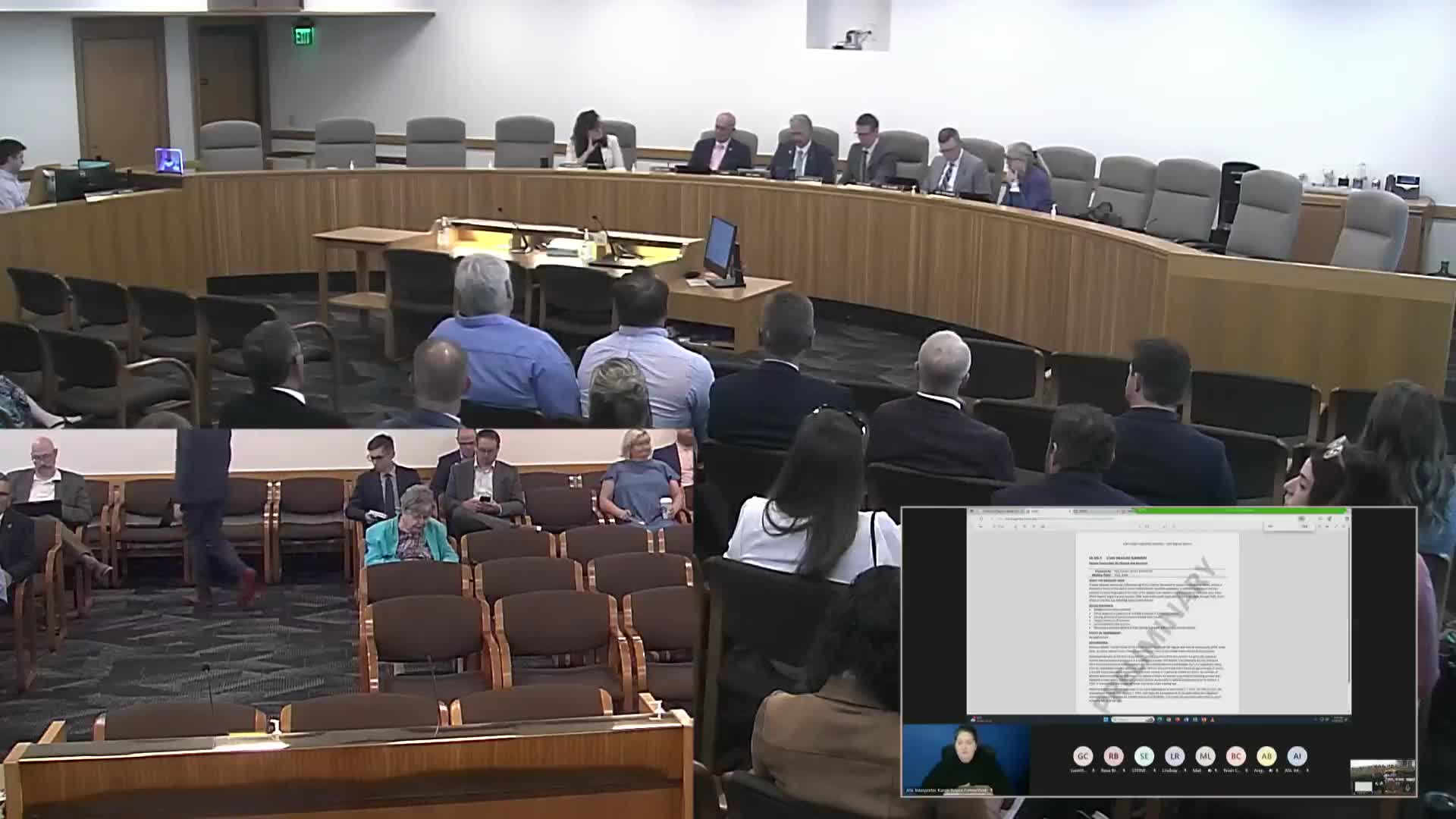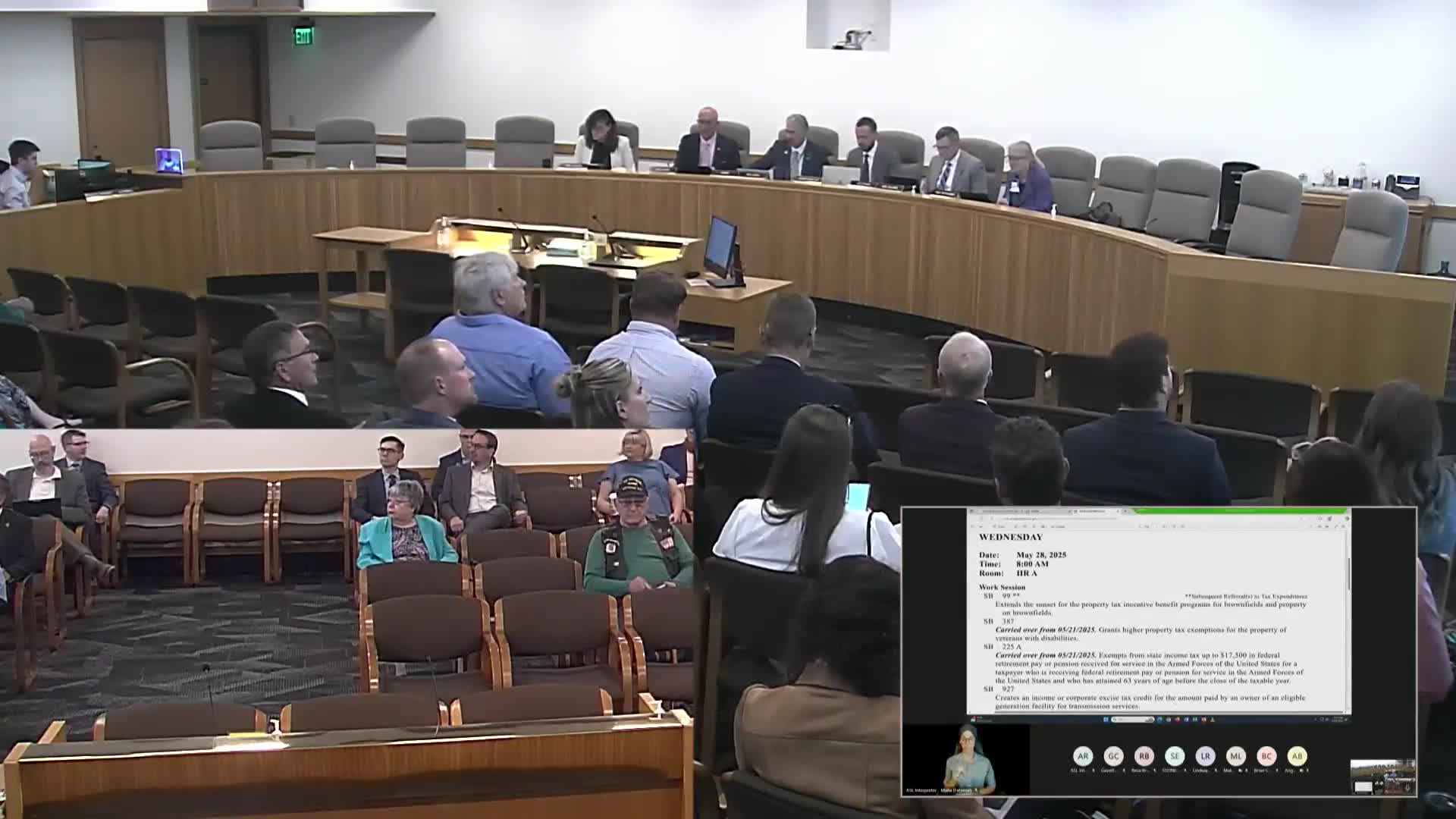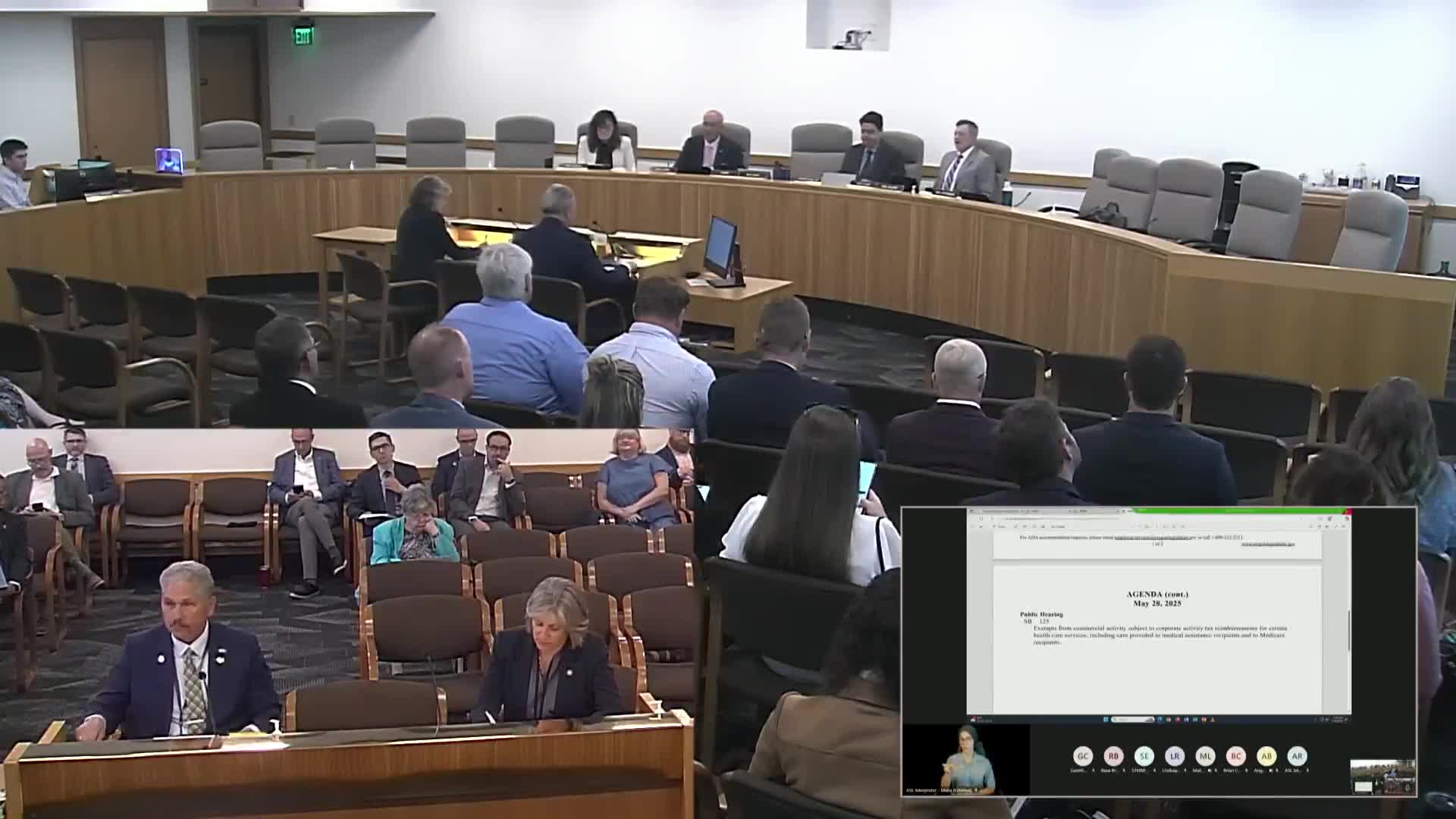Article not found
This article is no longer available. But don't worry—we've gathered other articles that discuss the same topic.

Committee advances military pension tax subtraction to the Senate floor with a due‑pass recommendation

Committee rescinds amendment after staff says means test in SB 387 could remove benefit for thousands of veterans

